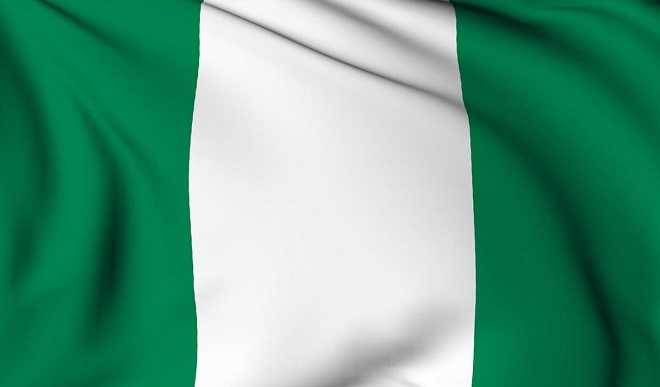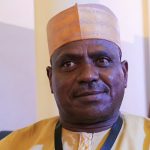Nigeria was deeply involved in the liberation struggle of Southern Africa countries, providing support to the various liberation movements in that region, despite the spatial distance. The support was so crucial that Nigeria was called a frontline state.
In a memorandum to General Olusegun Obasanjo, the then Head of State, dated August, 1976, Dr Adamu Haroun detailed how he furnished the Nigerian government with information on the political development in Southern Africa region and what it could do in its intervention in the liberation struggle of Zimbabwe.
Dr Haroun, then political editor, Daily Times Newspaper, was appointed by General Obasanjo to travel to Southern Africa and provide the government with information on the happenings in the region.
“Four nations – Botswana, Mozambique, Tanzania and Zambia,” Dr Haroun wrote in the special report, “constitute the four frontline states and their presidents meet occasionally, as charged by the OAU to map out strategy for the solution of the crisis in Zimbabwe.”
These countries, he noted, faced challenges in their campaign against the Smith regime in Rhodesia, due to the external pressure from the apartheid South Africa.
Ian Smith, first native-born prime minister of the British colony of Southern Rhodesia (now Zimbabwe) and ardent advocate of white rule, who in 1965 declared Rhodesia’s independence and its subsequent withdrawal from the British Commonwealth.
The campaign also suffered setback as a result of the grievances of the rival leadership of the ANC in Zimbabwe against the machinery set up by the OAU to prosecute the war in the country, the report said.
“The ANC leadership feels that the role of recruiting, directing and conducting the war has been usurped by the leaders of the four frontline states and the secretariat of the Liberation Committee.
“But this is so because as long as the ANC remains divided, the Liberation Committee will increasingly interfere and control the conduct of the Zimbabwean struggle. Also, as long as the ANC political leadership is left out of the struggle, success on the front could only be minimal,” he said.
In addition, finance was also a serious issue in the Zimbabwe’s liberation war. According to Dr Haroun, international aid going through the Liberation Committee was less than what was received by the rival ANC leaderships, who used the aid solely for their upkeep.
“The two most important nations who have the will to help, Mozambique and Zambia” he said, “are in the throes of serious economic problems…The third interested party, Tanzania, could not do much more than it is presently doing: provision of training camps.”
He noted that the OAU member states were also not redeeming their pledges to the liberation effort. The money pledged by African countries but not paid, he said amounted to $20 million US dollars of which Nigeria owed two million dollars.
But as an active member of the OAU, Nigeria, General Obasanjo said in the report, must not fight shy of its responsibility in championing the establishment of an effective coordinating military headquarters, which will train and equip the liberation movements, and thereby give them the teeth to bite to victory.
“Nigeria can, and should assist the liberation movements by training their personnel…Food and medicaments are as important and necessary as weapons and ammunition for survival for the freedom fighters. Nigeria should be able to provide both, and personnel for the liberation movements through the OAU,” Dr. Haroun quoted Gen. Obasanjo as saying.
But for this to be implemented, Dr Haroun suggested closer military consultation between Nigeria, Zambia and Mozambique.
“A military fact-finding mission should be sent to Mozambique to assess the current strength and fighting capability of the liberation movement. This would assist the government in assessing the strength and weakness of the movement with a view to rendering assistance where most needed,” he suggested.
Dr Haroun, in his report, recommended that the Nigerian government should set up a South African Relief Fund to which the general public and the government could contribute.
He also recommended that “Nigeria’s outstanding payment of two million dollars should be paid to the Liberation Committee without delay.
“That it would be necessary for Nigeria to change the pace of present talk-resolution-massacre-syndrome in Southern Africa. A shock treatment is needed and this would depend on consultation between the Nigerian government and Tanzania, Zambia and Mozambique.
“But before the year is out, Nigeria should take a stand either militarily or economically, that would definitely shake the entire Southern African region.”
Meanwhile, Dr Haroun, in a piece titled “Southern Africa in Revolt” stated that the South Africa Relief Fund was set up and that Nigeria paid its outstanding debt of two million dollars to the African Liberation Committee.
Nigeria, he stated, also witnessed the nationalisation of British Petroleum and Barclays Bank, which also contributed to the solution of Zimbabwe problem.
After the protracted war of liberation that claimed many lives, Southern-Rhodesia gained independence from the British in 1980, and took the name Zimbabwe.

 Join Daily Trust WhatsApp Community For Quick Access To News and Happenings Around You.
Join Daily Trust WhatsApp Community For Quick Access To News and Happenings Around You.


